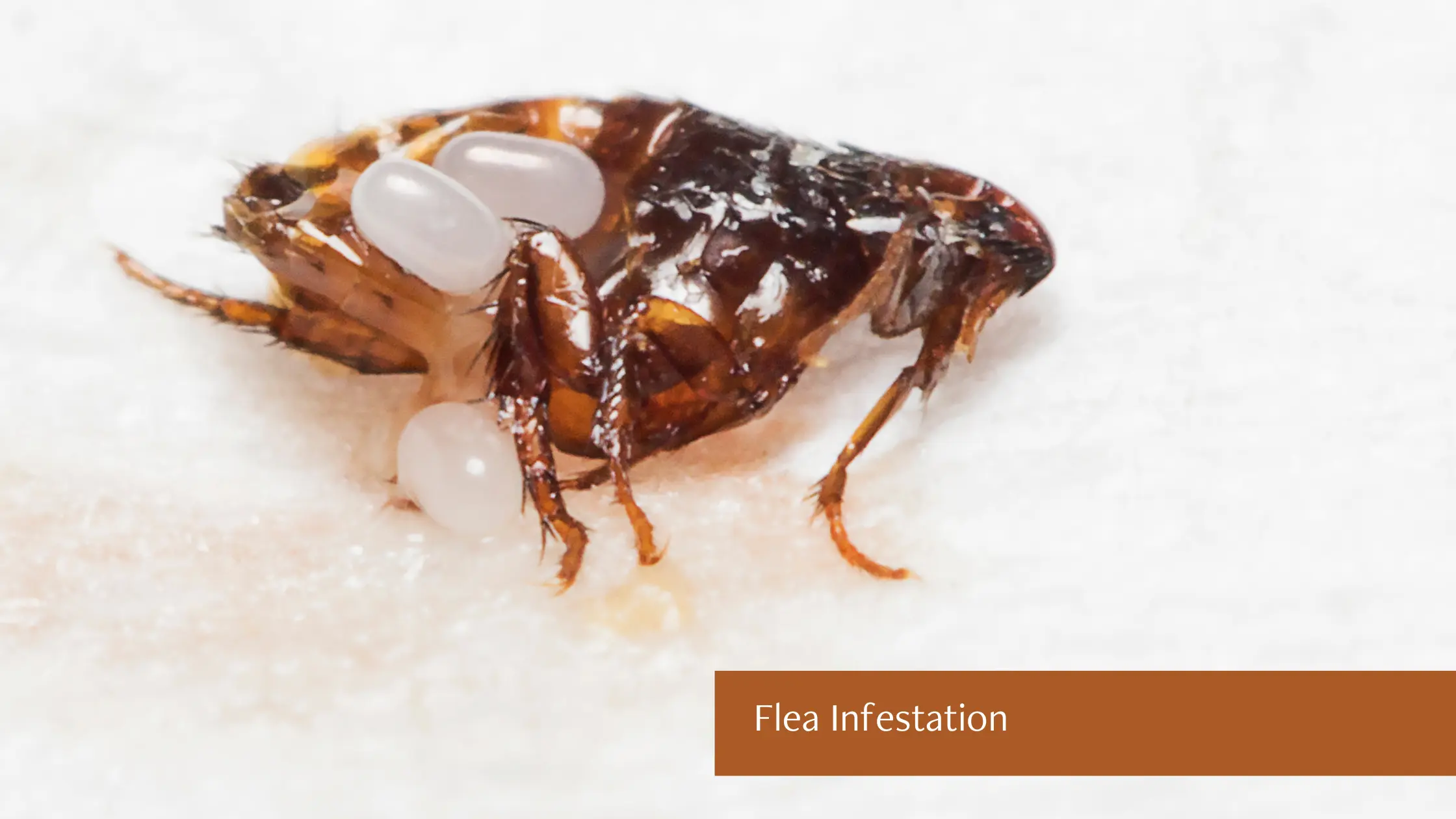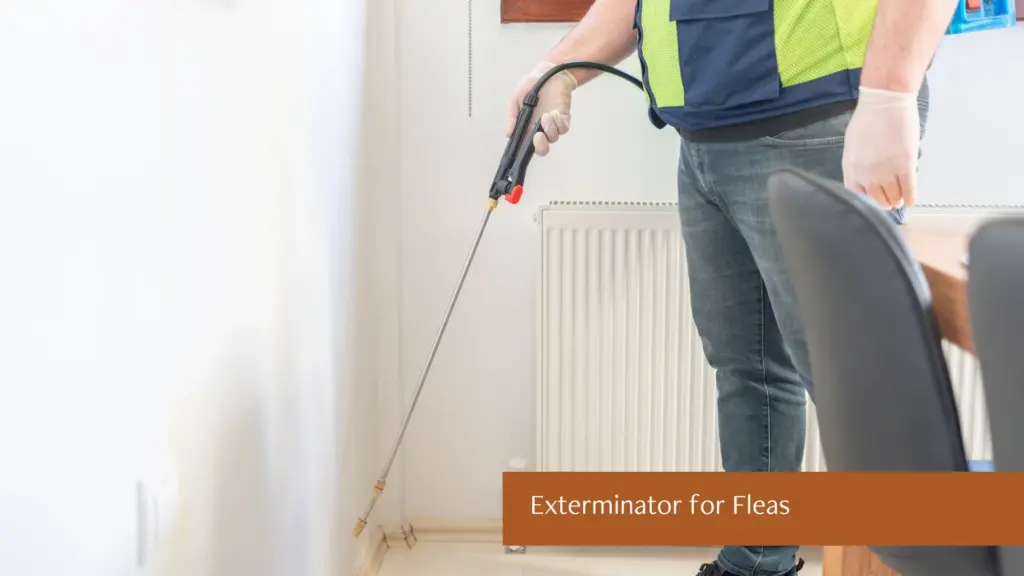When to Call an Exterminator for Fleas in Your Home
Anyone who has dealt with fleas in their home knows how relentless these tiny pests can be. Fleas don’t just bite and annoy your pets; they rapidly infest carpets, bedding, furniture, and can become a real nightmare if not handled properly. While you can try several home remedies and over-the-counter treatments, there comes a point when calling a professional exterminator is the smartest and most effective course of action.
This blog will help you understand the life cycle of fleas, early warning signs of an infestation, why DIY approaches often fall short, and most importantly, when you should call an exterminator for fleas in your home. If you’re currently battling a flea problem, read on to discover when professional pest control is your best ally.

Understanding Fleas and Their Life Cycle
Before recognizing the right time to call an exterminator for fleas, it’s crucial to understand why these pests are so persistent. Fleas go through four life stages—egg, larva, pupa, and adult. Adult fleas lay eggs on pets, which then fall off onto carpets, bedding, and cracks in the floor. These eggs quickly develop through the larval and pupal stages, often hiding in nooks and crannies.
Because only a small percentage of the flea population lives on animals at any given time, treating your pet alone doesn’t solve the problem. The majority of fleas are scattered throughout your home, developing and waiting to hatch. This complex life cycle makes total eradication difficult and usually requires a comprehensive, multi-step approach.
Early Signs of Flea Infestation
Fleas are small, but their presence is often betrayed by several telltale signs, including:
- Frequent Scratching: Pets constantly scratching, chewing, or biting their fur
- Red, Irritated Skin: Tiny red bites on you, your family, or your pets
- Flea Dirt: Pepper-like black debris in pet fur or on bedding (flea feces)
- Bites on Ankles and Legs: Fleas often bite humans around the feet and lower legs
- Sightings of Fleas: Small, fast-moving brown insects in pet fur, carpets, or furniture
Catching the problem early is crucial, but even the best household efforts may not be enough to fully eliminate a growing infestation.
DIY Flea Treatments and Their Limitations
Many homeowners attempt to handle fleas with do-it-yourself methods and over-the-counter sprays, powders, or flea bombs. While these methods can provide temporary relief, they rarely address the problem at its source. Here are a few reasons why:
- Incomplete Treatment: Home remedies often kill adult fleas but fail to eliminate eggs or larvae.
- Reinfestation: Surviving fleas quickly reproduce, leading to a resurgence of the infestation.
- Limited Reach: Fleas hide deep in carpets, crevices, and upholstery where DIY methods may not reach.
- Pet Cautiousness: Some over-the-counter treatments can be harmful to pets if used incorrectly.
If you find yourself repeatedly using flea treatments with little success, it might be time to consider calling in the experts.
When Should You Call an Exterminator for Fleas?
While small infestations can sometimes be managed at home, there are several clear indicators that it’s time to call a professional exterminator for fleas:
1. Infestation Persists After Home Treatment
If you’ve thoroughly cleaned, vacuumed, and treated your home and pets but continue to see fleas or experience bites, the infestation may be too entrenched for DIY solutions. Fleas can survive for months in cocoons, making them hard to reach with surface-level treatments.
2. Family Members or Pets Have Allergic Reactions
Flea bites can cause strong allergic reactions, especially in pets with flea allergy dermatitis. Severe itching, skin infections, or visible discomfort in your pets are a sign that the problem is urgent and requires immediate attention from a professional exterminator.
3. You Notice Flea Dirt or Eggs Despite Cleaning
Spotting flea dirt in pet bedding or finding small white eggs in your carpets, rugs, or furniture means fleas are actively reproducing in your home. This level of infestation is nearly impossible to eliminate without targeted pesticides and professional equipment.
4. The Infestation Spreads to Multiple Rooms
Fleas are mobile; they’ll quickly spread from a single room to your entire home. If you find fleas or flea-related symptoms in several rooms, skipping straight to professional extermination is the most efficient and effective route.
5. You Want Lasting Prevention
Even after fleas are eradicated, the right exterminator can provide advice and preventive treatments to keep your home pest-free long-term. This includes treating your yard, recommendations for ongoing pet care, and follow-up inspections to ensure the problem doesn’t return.

What to Expect from a Professional Flea Exterminator
A licensed exterminator for fleas will begin by thoroughly assessing your infestation, often inspecting both your home and any outdoor areas where pets frequent. Professional treatment may include:
- Targeted Pesticide Applications: Strategically applied to carpets, flooring cracks, upholstery, and pet resting areas
- Integrated Pest Management: Advice on cleaning, vacuuming, and pet treatments to prevent recurrence
- Follow-up Visits: Ensuring all flea life stages are eradicated, often requiring a second treatment after initial application
- Comprehensive Approach: Addressing not just fleas but also other pests that may be present
Professional exterminators use more powerful and longer-lasting products than those available to the general public, and they come equipped with the knowledge to target flea hotspots effectively.
How to Prevent Future Flea Infestations
After your home is treated by an exterminator for fleas, you’ll want to avoid a repeat infestation. Some best practices include:
- Regularly Wash Pet Bedding: Clean all bedding, toys, and blankets in hot water.
- Vacuum Frequently: Pay extra attention to corners, baseboards, and under furniture.
- Use Vet-Approved Flea Preventatives: Treatment and prevention for all pets.
- Maintain Your Yard: Tall grass and damp, shady areas are breeding grounds for fleas.
- Inspect New Pets: Always check new pets for fleas before bringing them inside.
Don’t Wait for Fleas to Take Over
The longer you wait to address a flea problem, the harder it is to solve. Professional intervention not only saves time and frustration but also protects your family and pets from bite-related health issues and allergic reactions.
Call the Experts Today
If you’re struggling with persistent fleas in your home, don’t waste another day with treatments that only scratch the surface. Contact our experienced pest control team for a comprehensive inspection and customized extermination plan. Reclaim your home, protect your loved ones, and enjoy peace of mind knowing your flea problem is handled for good.
Call Brooks Pest Solutions today or request your free quote online! Your home deserves to be flea-free.
